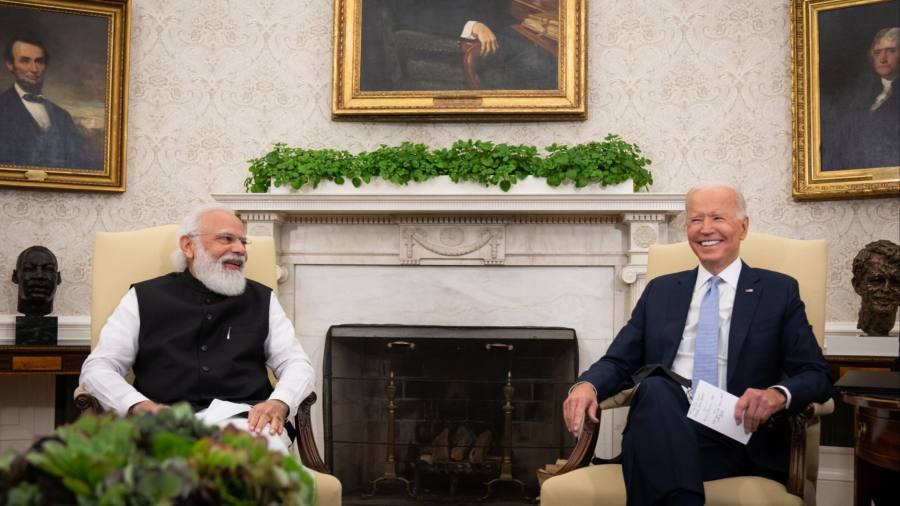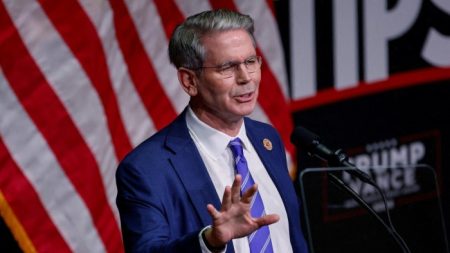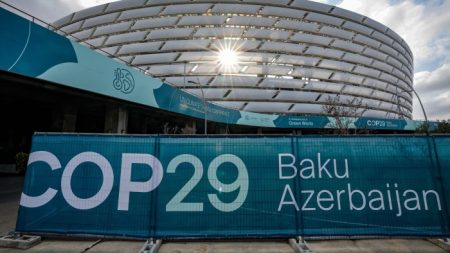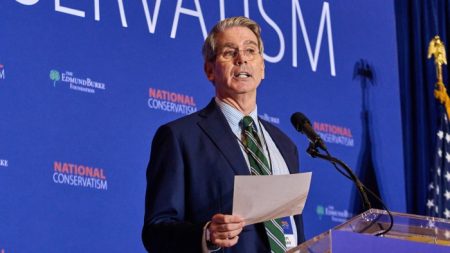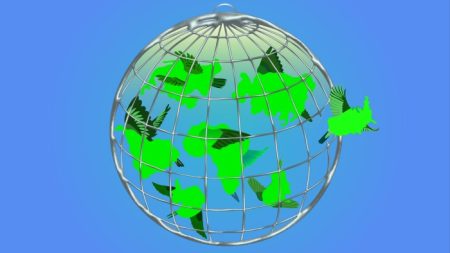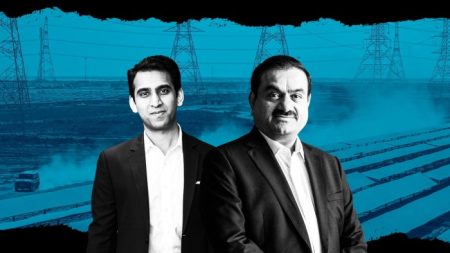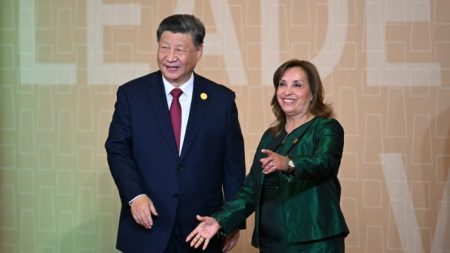In the weeks and days leading up to Narendra Modi’s state visit to Washington this week, US officials have been outdoing one another with words of adulation that have delighted the Indian leader’s supporters and made his critics cringe.
“He is the most popular world leader for a reason,” commerce secretary Gina Raimondo said at an India House event in Washington in April, wearing a green and yellow sari and gesturing expansively. “He is unbelievable, visionary, and his level of commitment to the people of India is just indescribable.”
Eric Garcetti, the US ambassador who arrived in New Delhi last month, has called Modi India’s “guru-ji” and Ajit Doval, the prime minister’s hard-boiled national security adviser, “not only a national treasure but an international treasure”.
Local media reported that at a Quad meeting on the sidelines of last month’s G7 summit in Hiroshima, President Joe Biden told Modi that he was running out of tickets for next Thursday’s state banquet at the White House because the Indian leader is “too popular”.
In a world of post-pandemic supply chain shifts, a globally disruptive war in Ukraine and rising concerns about China, the US is not alone in rolling out the red carpet for India. France’s Emmanuel Macron has invited Modi to be its guest of honour at next month’s Bastille Day parade.
But this charm campaign has been noted with dismay by India’s liberal elites. Analysts say western democracies are putting aside human rights principles, including concerns about New Delhi’s treatment of minority Muslims and Christians, its pressure on non-governmental organisations and journalism and weakening of democratic standards because they need India as a bulwark against China.
“Western countries have decided to look away from the decline in democratic credentials, press freedoms or treatment of religious minorities taking place in India because they think they need India to counterweigh China,” says Sushant Singh, senior fellow with the Centre for Policy Research. “They believe a stronger India would provide a counter to China’s rise.”
India’s government rejects the notion that its democracy is anything other than robust, and its defenders can easily find examples of democratic backsliding in western countries, not least the US.
From an American point of view, India is hardly the only country where Washington pushes human rights to the side and geopolitical considerations to the fore, as seen in its growing alignment on defence with Vietnam, a one-party non-democracy. Among other democracies, Israel, with its patchy human rights record and fraying of democratic institutions under Benjamin Netanyahu, is a perennial US ally with bipartisan support.
“The question is, are we propping up an increasingly illiberal democracy here?” asks Derek Grossman, senior defence analyst with the Rand Corporation, of the US-India relationship. “In my view, we are.”
He adds: “We have taken the view that geopolitics and countering China is more important to us right now than the values-based diplomacy the Biden administration came in saying they would prioritise.”
India’s scale is what makes it different both in terms of what its western diplomatic partners are willing to overlook, and how much they have to gain from doing so.
The country is now the world’s largest buyer of arms, according to the Stockholm International Peace Research Institute. France, thanks to an order of 36 Rafale fighter jets, is now its second-largest military supplier after Russia, with the US third.
Modi will address Congress on Thursday and preside over the sighing of a slew of deals involving US companies, the fruit of a widening US-India partnership in technology and defence.
More deals, including an expected agreement with GE to build jet engines in India, are expected as the country pushes an “indigenisation” plan to build up local defence production.
Despite these priorities, some criticism of India on human rights does emerge from parts of the US administration. The state department’s most recent Religious Freedom Report listed India among 17 countries of particular concern, citing violence and hate speech against Muslims and Christians.
But these days, it is usually with a whisper. When opposition MP Rahul Gandhi was recently convicted of criminal defamation and stripped of his parliamentary seat, the US said it was “watching” the case in carefully worded language that stressed Washington and New Delhi’s “shared commitment to democratic values”.
Analysts following the upcoming visit say any US words on sensitive issues, including both human rights and India’s ties with Russia, will be similarly delicate, to the extent they are voiced at all.
Read the full article here



